NUS High School student wins at international Google Science Fair
SINGAPORE — To lighten the workload of teachers while offering students the chance to tackle more revision questions — should they wish to — 17-year-old Singaporean Girish Kumar programmed a web application that can automatically, and smartly, generate questions from a given text.
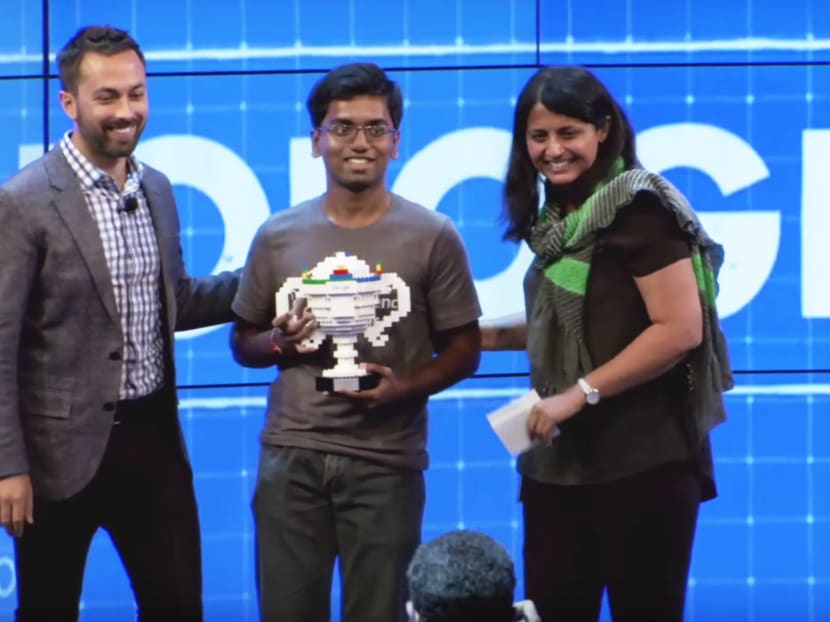
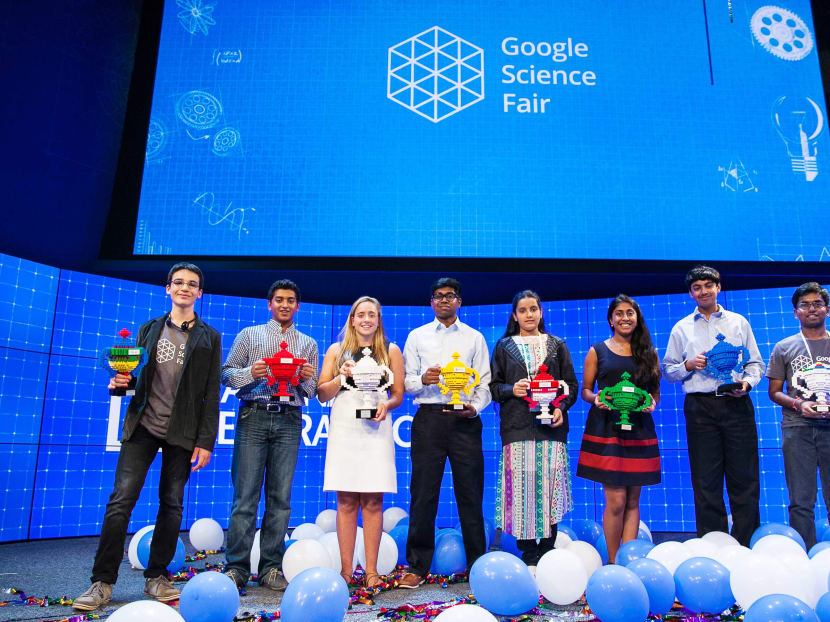
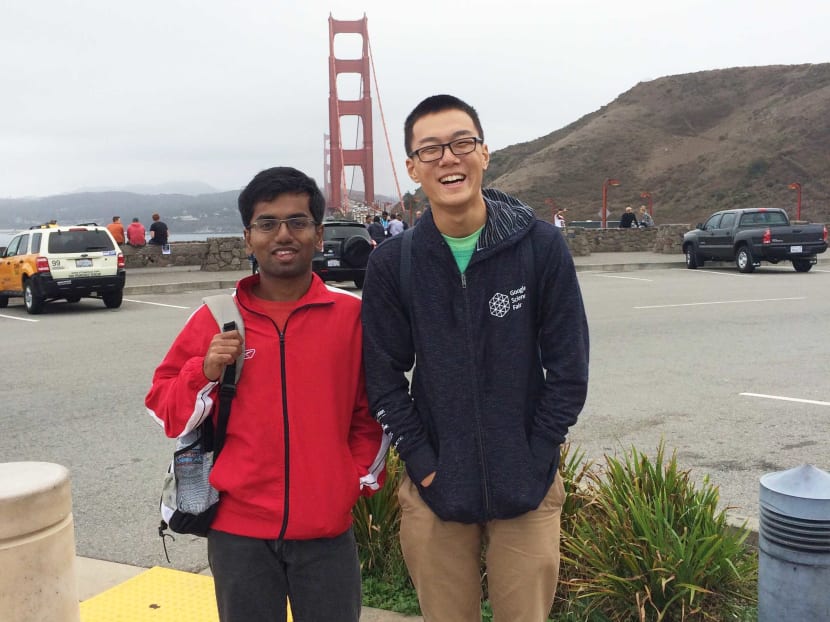
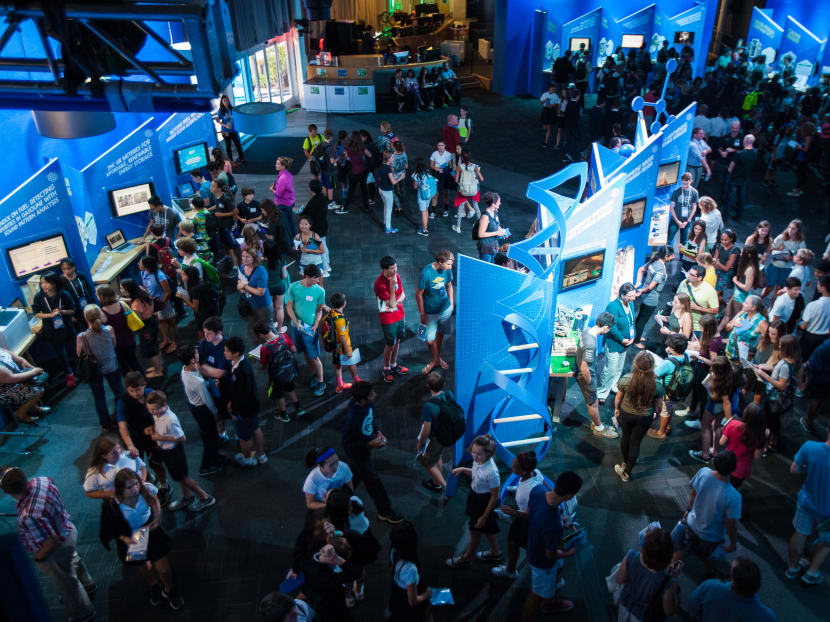
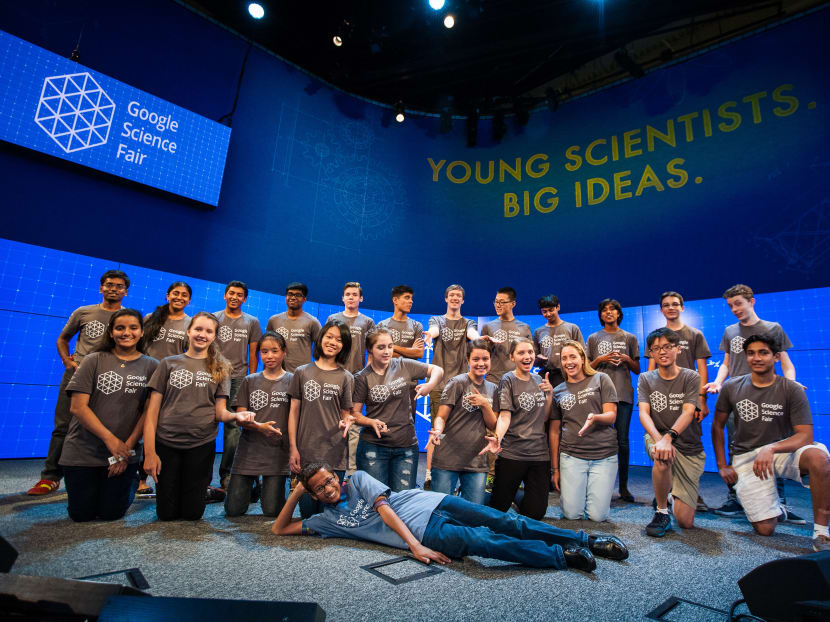
SINGAPORE — To lighten the workload of teachers while offering students the chance to tackle more revision questions — should they wish to — 17-year-old Singaporean Girish Kumar programmed a web application that can automatically, and smartly, generate questions from a given text.
For his year-long effort to help improve learning, the NUS High School of Math and Science student was awarded the Google Technologist Award on Tuesday at the annual Google Science Fair, making him the first participant from Singapore to win an award at the finals of the online science competition for students aged between 13-18 from around the world.
Girish's project, as well as an entry from 18-year-old Raffles Institution student Wang Zhilin, were earlier shortlisted as the top 18 projects in the Asia Pacific region, and later advanced into the top 20 entries in the world from some 90 shortlisted projects. As a finalist, he was flown to Google’s headquarters in Mountain View, California, on Monday, where he presented his ideas to a panel of Googlers — and won them over.The Google Technologist Award recognises a project that has the potential to change the world, through outstanding and innovative work in the field of computer science and/or math.
Girish told TODAY that the idea was birthed in the brief period when he and his friends were hooked to QuizUp — a mobile game application in which people challenged each other to trivia questions. “I found that the questions kept repeating themselves, and this was because actual people were drafting the questions,” Girish said. “That got me thinking: If we could somehow automatically generate questions, we could get a much greater variety of questions.”
After a joke by his friend that he would top biology if QuizUp was used in class, Girish decided to create an application for the education sector.
To create the automatic question generator, he programmed a system that would select important and coherent sentences from a given text to focus questions on. With the selected text, algorithms he created would then identify the appropriate part of the text to be removed and create “fill-in-the-blank” questions with multiple choice options to select as an answer. The multiple choice options are similar in meaning and syntax, posing an challenge to students.
He noted that more students are turning to online text to supplement classroom learning, but online text lacks review questions. “Teachers already spend an immense amount of time manually drafting questions, and we cannot expect them to do the same for every possible online text. That’s why I built RevUP,” he said.
With the US$25,000 (S$35,700) funding he won from Google to develop his project, Girish is now working with his schoolmate to make the application available online by the end of this year.
It will be especially useful in revising for “extremely knowledge-driven and content-driven” subjects such as Biology, said Girish, who also submitted his project to other competitions and won first prize in this year’s A*STAR Talent Search and a silver award at the Singapore Science and Engineering Fair.
As part of the Google Science Fair award, he also won a year-long mentorship by a Google employee and a visit to the Google office in Singapore.
The fair’s Grand Prize winner, who took home US$50,000 in funding, is 16-year-old Olivia Hallisey from the US, who created a novel way to detect Ebola. Other than the grand prize and technologist award, several other awards were given out, including the National Geographic Explorer award and the Scientific American Innovator award. Other winners are from the US, UK, France and India.








